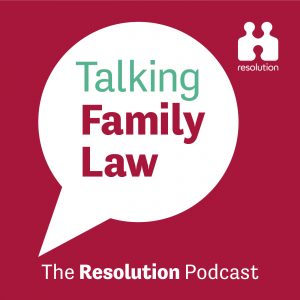S3 Episode 11: What to do when a reporter turns up in Court
About this episode
Hosted by: Anita Mehta and Simon Blain
Guests: Joshua Rozenberg KC and Lucy Reed KC
Further information
Our hosts, Anita Mehta and Simon Blain, discuss what to do when a reporter turns up in your Court and the importance of transparency with Joshua Rozenberg KC (Hon) and Lucy Reed KC (St John’s Chambers, Chair of The Transparency Project).
Joshua refers us to the lessons learnt in Tickle v Father & Ors [2023] EWHC 2446 (Fam) (05 October 2023).
https://www.bailii.org/ew/cases/EWHC/Fam/2023/2446.html
Our guests discuss the benefits both of judgments being published and reporters having access to write up what happens. Joshua talks about the importance of the public knowing how the state will resolve their private disputes if they are unable to do so. He makes the point that the public are only going to know about the importance of Family Jusctice being properly resourced if the press are able to report about what happens. They both reiterate that scrutiny of the Court is healthy.
The message that Joshua and Lucy give our audience is that there is nothing unlawful or inappropriate about a party or a lawyer asking a reporter if they would like to observe a case. This is not a breach of s.12 of the Administration of Justice Act 1960. This has been specifically endorsed by the senior judges responsible for the Reporting Pilot, because unless reporters are told about interesting cases they will not come to Court. They make it clear that it is not appropriate for the Judge or the other participants to cross-examine reporters about who told them about the hearing, and the reporter does not need to make an application to attend the hearing.
Lucy refers us to the Transparency Project’s guidance notes for help if a reporter turns up in a case you are due to appear in https://transparencyproject.org.uk/updated-guidance-what-to-do-if-a-reporter-attends-or-wants-to-attend-your-hearing-pilot-and-non-pilot-court-versions/. Lucy points out, it is not for the reporter/ blogger to make an application to make an application to be present in Court, as there is a limited basis for a Court to exclude a reporter, which is found in FPR 27.11 (3).
(3) At any stage of the proceedings the court may direct that persons within paragraph (2)(f) shall not attend the proceedings or any part of them, where satisfied that—
(a)this is necessary—
(i)in the interests of any child concerned in, or connected with, the proceedings;
(ii)for the safety or protection of a party, a witness in the proceedings, or a person connected with such a party or witness; or
(iii)for the orderly conduct of the proceedings; or
(b)justice will otherwise be impeded or prejudiced.
If the Court is considering relaxing reporting restrictions it will need to undertake a balancing exercise to weigh the respective weight of article 8 and article 10, as set out by Lord Steyn in Re S (a child), Re [2004] UKHL 47 (28 October 2004).
https://www.bailii.org/uk/cases/UKHL/2004/47.html
‘The interplay between articles 8 and 10 has been illuminated by the opinions in the House of Lords in Campbell v MGN Ltd [2004] 2 WLR 1232. For present
purposes the decision of the House on the facts of Campbell and the differences between the majority and the minority are not material. What does, however, emerge clearly from the opinions are four propositions. First, neither article has as such precedence over the other. Secondly, where the values under the two articles are in conflict, an intense focus on the comparative importance of the specific rights being claimed in the individual case is necessary. Thirdly, the justifications for interfering with or restricting each right must be taken into account. Finally, the proportionality test must be applied to each. For convenience I will call this the ultimate balancing test. This is how I will approach the present case.’
If you would like to hear Joshua’s new podcast, you can find it on rozenberg.substack.com
If you are a lawyer considering becoming a legal blogger yourself (or a journalist interested in dipping your toe in reporting the family court), Lucy encourages you to get in touch with the Transparency Project: trustees@transparencyproject.org.uk. You can find out more about legal blogging at www.transparencyproject.org.uk/legalbloggers
 Join Resolution’s family law experts in our Podcast series
Join Resolution’s family law experts in our Podcast series